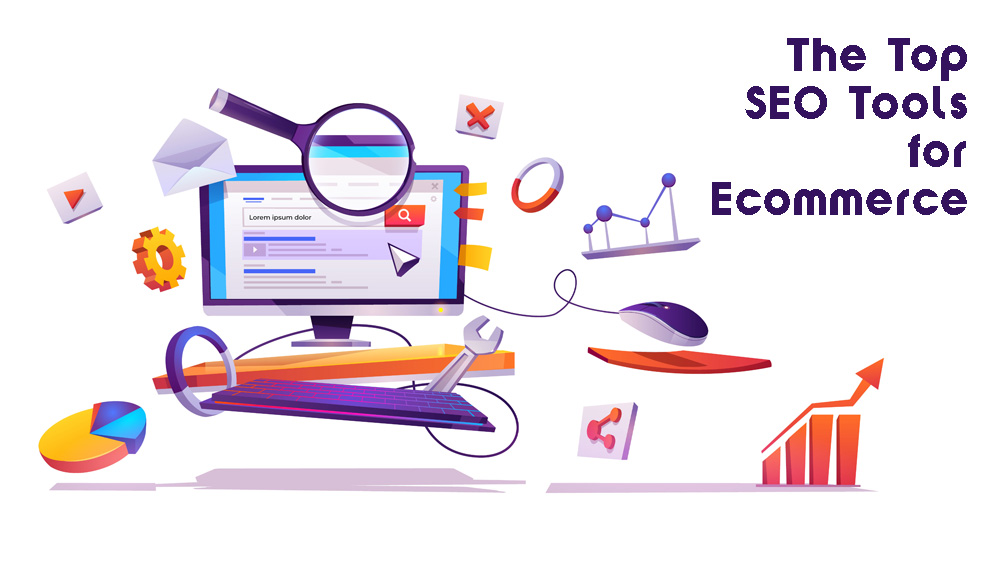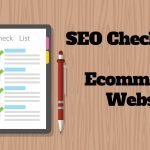In today’s digital age, having a strong online presence is crucial for the success of any ecommerce business. With the rise of online shopping, competition in the ecommerce industry is fierce, making it essential for businesses to optimize their websites for search engines.
This is where ecommerce SEO tools come in. These tools help businesses improve their website’s search engine ranking, increase website traffic, and ultimately boost online sales. In this article, we’ll explore the top ecommerce SEO tools that can help your business achieve success.
Why Ecommerce SEO is Important
Before we dive into the top ecommerce SEO tools, let’s first understand why ecommerce SEO is crucial for your business.
Improve Website Visibility
With millions of websites on the internet, it’s easy for your ecommerce website to get lost in the crowd. Ecommerce SEO helps improve your website’s visibility, making it easier for potential customers to find your business online.
Increase Website Traffic
The higher your website ranks on search engine results pages (SERPs), the more likely it is to receive organic search traffic. However, your site is one of tens of millions, and the odds are that there are thousands that sell the same or similar products.
You will have to put in work to rank or the odds are stacked against you.Optimizing your website for search engines can attract more potential customers to your website, increasing the chances of making a sale. Good tools can make this a more successful process.
Boost Online Sales
If your site is more visible and ranks better in search for the right keywords, you will attract more buyers. Ultimately, the goal of ecommerce SEO is to increase online sales. By optimizing your website for search engines, you can attract more qualified leads and convert them into paying customers, resulting in increased revenue for your business.
The Top Ecommerce SEO Tools
Now that we understand the importance of ecommerce SEO, let’s explore the top tools that can help your business achieve success.
SEMrush
SEMrush is a comprehensive SEO tool that offers a wide range of features to help businesses improve their website’s search engine ranking. SEMrush makes it possible to conduct keyword research, track your website’s performance, and analyze your competitors’ strategies. All this great data helps you build your optimization strategy and plan.
One of the standout features of SEMrush is its Site Audit tool, which identifies technical SEO issues on your website and provides recommendations for improvement. This can help improve your website’s overall performance and search engine ranking.
While there are quite a few tools that can help you find technical issues to fix, this feature allows you to use the same software and track progress on multiple efforts. This is also more detailed than what you get in Google Search Console.
Ahrefs
Ahrefs is another popular SEO tool that offers a variety of features to help businesses improve their website’s search engine ranking. With Ahrefs, you can conduct keyword research, track your website’s backlinks, and analyze your competitors’ backlink profiles.
One of the standout features of Ahrefs is its Content Explorer tool, which allows you to search for popular content in your industry. This can help you create content that resonates with your target audience and drives more traffic to your website.
Google Analytics
Google Analytics is a free tool that provides valuable insights into your website’s performance. With Google Analytics, you can track website traffic, user behavior, and conversion rates, allowing you to make data-driven decisions to improve your website’s performance.
One of the standout features of Google Analytics is its ecommerce tracking, which allows you to track sales, revenue, and other ecommerce metrics. This can help you understand your customers’ behavior and make informed decisions to boost online sales.
GA also ties into Google Search Console which is designed to track your SEO progress.
Google Search Console
This free tool from Google keeps getting more useful. Use Search Console to track page and keyword rankings, site performance, and mobile issues as well. While SEMRush and HREFs are estimating keyword traffic, Google knows what is real and what is not.
Use this tool to submit your sitemap to Google and measure how many pages you have that are indexed in the search engine. You can even inspect a specific URL to uncover potential issues.
GSC gives you keyword ranks, click-through rates, speed and mobile performance, and other metrics that are useful for measuring progress. What it can’t do is give you information on your competition.
How to Choose the Right Ecommerce SEO Tools
With so many ecommerce SEO tools available, it can be overwhelming to choose the right one for your business. Here are some factors to consider when selecting ecommerce SEO tools:
Features
Different SEO tools offer different features, so it’s essential to determine which features are most important for your business. For example, if you’re looking to improve your website’s technical SEO, a tool like SEMrush or Moz Pro may be a better fit.
Pricing
Ecommerce SEO tools come at various price points, so it’s important to consider your budget when selecting a tool. Some tools offer a free trial or a free version with limited features, so you can test them out before committing to a paid plan. Keep in mind that if you’re serious about ranking, you will want the paid versions of your software sooner or later. As with all tools, if you aren’t getting the return on investment, cancel.
User-Friendliness
Some SEO tools can be complex and challenging to navigate, while others are more user-friendly. Consider your team’s technical abilities and choose a tool that is easy to use and understand.
There should also be great tutorials available to master each tool.
Integrations
If you’re already using other tools for your ecommerce business, it’s important to choose an SEO tool that integrates with them seamlessly. This can help streamline your processes and make it easier to manage your website’s SEO.
How soon will I see my rankings and sale rise?
That depends on your how well your website is set up for SEO and conversions (a bad site won’t sell – period), what SEO efforts you are doing, and how much time and money you are investing into the project.
SEO can take many months and is rarely an instant ROI but it does pay off. If you don’t have the time to do a good job, it is likely well worth paying an SEO professional. Just keep in mind that the wrong person can do a lot of damage in short order. This is not a place to cheap out.
I can’t afford these tools
When it comes to ecommerce, no traffic = no sales. So you absolutely need to market to drive traffic. While immediate needs can be met by paid ads, SEO is the long game and can ultimately bring you a lot of traffic you haven’t bought ads for. SEO is still not free as there’s always a cost of time and money, but it snowballs over time and can ultimately provide for more traffic than other methods of marketing.
I’d beg to say you can’t afford not to use the tools or a professional.
However, you can start with the free things and trials. Google Search Console and Analytics, plus some low-cost shopping cart tools designed for technical SEO can help you bring your pages up to snuff. That’s where your SEO effort should begin.
More Free SEO Tools (or very low cost)
For WordPress/WooCommerce Yoast and RankMath are the two leading contenders.
For BigCommerce FAVSEO, SEO Rich Snippets, SEOKart lead the pack.
For Shopify SEMRush Ecommerce Booster App, Tapita SEO and Sherpas Smart SEO are good options.
Conclusion
Ecommerce SEO is crucial for the success of any online store. If you use the right tools, your business can improve your website’s search engine ranking, increase website traffic, and ultimately boost online sales.
Consider your business’s needs and budget when selecting ecommerce SEO tools, and don’t be afraid to test out different tools to find the best fit for your business. With the right tools and strategies, your ecommerce business can achieve success and stand out in a competitive market.






